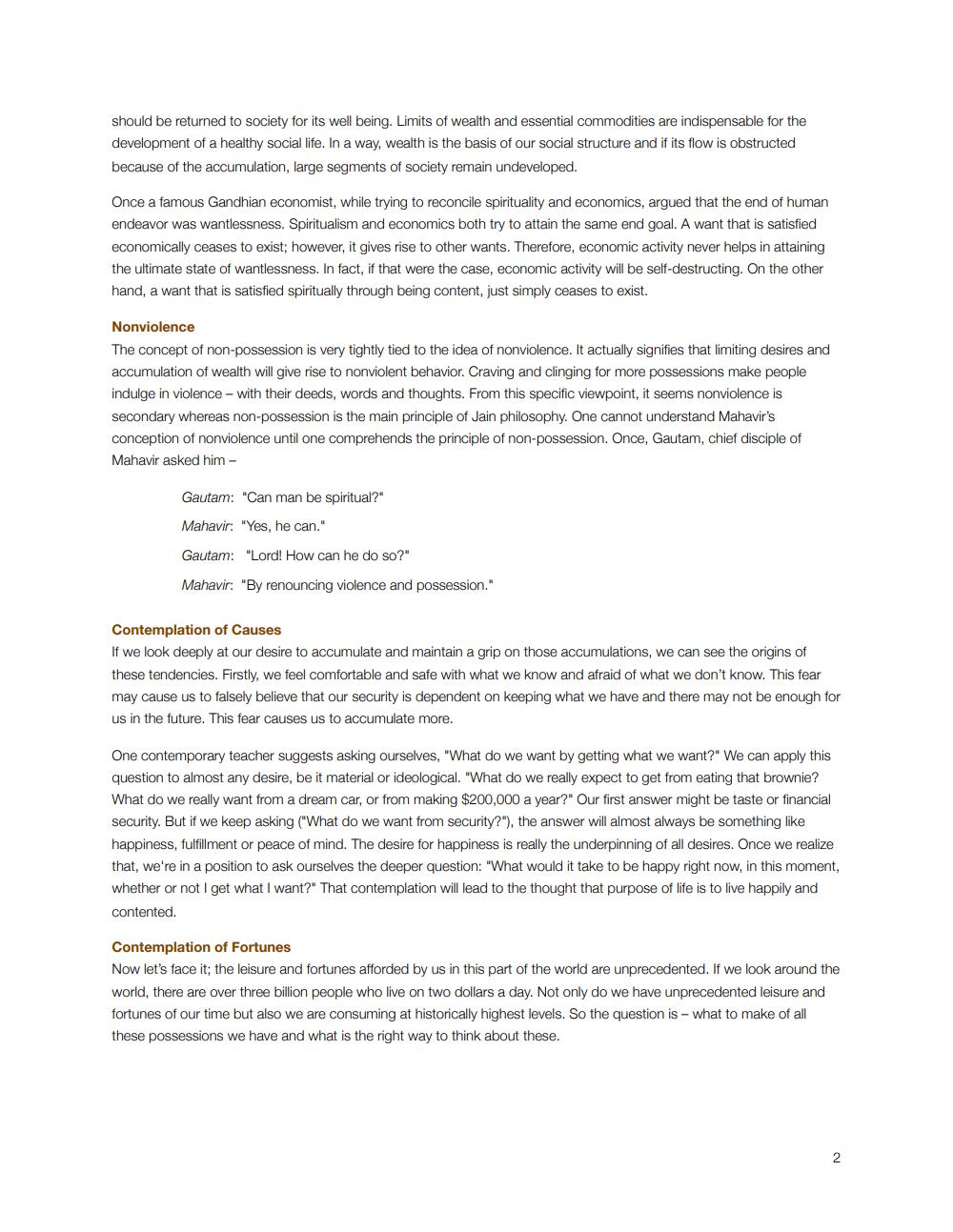Book Title: This Blessed Life Author(s): Nirmala Baid Publisher: Nirmala Baid View full book textPage 2
________________ should be returned to society for its well being. Limits of wealth and essential commodities are indispensable for the development of a healthy social life. In a way, wealth is the basis of our social structure and if its flow is obstructed because of the accumulation, large segments of society remain undeveloped. Once a famous Gandhian economist, while trying to reconcile spirituality and economics, argued that the end of human endeavor was wantlessness. Spiritualism and economics both try to attain the same end goal. A want that is satisfied economically ceases to exist; however, it gives rise to other wants. Therefore, economic activity never helps in attaining the ultimate state of wantlessness. In fact, if that were the case, economic activity will be self-destructing. On the other hand, a want that is satisfied spiritually through being content, just simply ceases to exist. Nonviolence The concept of non-possession is very tightly tied to the idea of nonviolence. It actually signifies that limiting desires and accumulation of wealth will give rise to nonviolent behavior. Craving and clinging for more possessions make people indulge in violence - with their deeds, words and thoughts. From this specific viewpoint, it seems nonviolence is secondary whereas non-possession is the main principle of Jain philosophy. One cannot understand Mahavir's conception of nonviolence until one comprehends the principle of non-possession. Once, Gautam, chief disciple of Mahavir asked him - Gautam: "Can man be spiritual?" Mahavir: "Yes, he can." Gautam: "Lord! How can he do so?" Mahavir: "By renouncing violence and possession." Contemplation of Causes If we look deeply at our desire to accumulate and maintain a grip on those accumulations, we can see the origins of these tendencies. Firstly, we feel comfortable and safe with what we know and afraid of what we don't know. This fear may cause us to falsely believe that our security is dependent on keeping what we have and there may not be enough for us in the future. This fear causes us to accumulate more. One contemporary teacher suggests asking ourselves, "What do we want by getting what we want?" We can apply this question to almost any desire, be it material or ideological. "What do we really expect to get from eating that brownie? What do we really want from a dream car, or from making $200,000 a year?" Our first answer might be taste or financial security. But if we keep asking ("What do we want from security?"), the answer will almost always be something like happiness, fulfillment or peace of mind. The desire for happiness is really the underpinning of all desires. Once we realize that, we're in a position to ask ourselves the deeper question: "What would it take to be happy right now, in this moment, whether or not I get what I want?" That contemplation will lead to the thought that purpose of life is to live happily and contented. Contemplation of Fortunes Now let's face it; the leisure and fortunes afforded by us in this part of the world are unprecedented. If we look around the world, there are over three billion people who live on two dollars a day. Not only do we have unprecedented leisure and fortunes of our time but also we are consuming at historically highest levels. So the question is - what to make of all these possessions we have and what is the right way to think about these. 2Page Navigation
1 2 3 4
